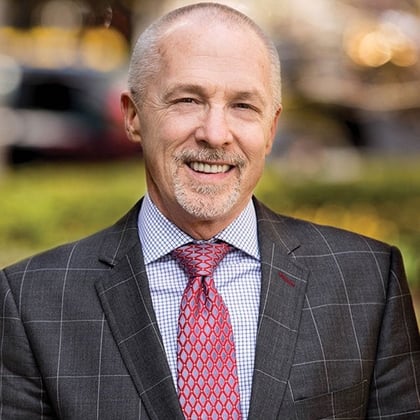There is seldom a quiet time in the legal and financial professions, but the last several years have clearly been some of the busiest in memory for professionals focused on serving high- and ultra-high-net-worth clients, according to David Guin, a partner and the leader of Withers’ U.S. corporate practice team.
This is due in part to a confluence of high-level regulatory and economic factors, Guin says, but also due to the fact that family offices are now estimated to be overseeing tens of trillions of dollars in assets globally.
Simply put, there is a lot of work to do when it comes to stewarding such a tremendous amount of accumulated wealth in an efficient and compliant manner — especially when a client has ties to multiple countries and different legal jurisdictions to contend with.
As Guin emphasized in a recent call with ThinkAdvisor, beyond supporting the sheer scale of investment activities undertaken by family offices today, advisors and attorneys are also being called upon to deliver a broader range of services.
This is true for single-family offices focused on the needs of one family’s wealth, Guin explains, and for emerging multi-family offices providing a growing range of professionalized services.
Ultimately, Guin says, it is a challenging but rewarding time to be working in this area of the law, and he encourages financial advisors with high- and ultra-high-net-worth clients to be mindful of emerging trends.
Those who fail to deliver responsive, cutting edges services to their clients — and those who fail to keep their clients on a solid legal footing — risk losing this coveted business.
THINKADVISOR: Would you say a lot of your clients are relatively similar in terms of the challenges and opportunities they face?
DAVID GUIN: I would say they do share some broad characteristics, but they are split into a few different buckets.
First, there is a group of clients who still have their primary wealth tied up in an operating company. They are operating a business and dealing with financial investments on the side, and that’s a challenge for them.
The second group of clients has at some point of time switched from their wealth being primarily locked up in operating companies to primarily being held as financial assets. That obviously means they have a different set of issues and needs.
And then we also have what we call our founders’ practice, if you will. One of the things that comes up a lot there, with the markets freezing up a little bit, is looking for ways to create liquidity.
These are people who perhaps expected to go public already and sell their shares of their company to make their money, but as this kind of activity slows a little bit with the broader economy, supporting them is about trying to find ways to create liquidity.
Is it fair to say that sourcing liquidity for this founders’ group at this current moment is relatively difficult, given some of the concern and skepticism we have seen about lending in this economic environment?
Well, it’s interesting, because I think in this space it is more difficult to source liquidity, broadly speaking, but there are also financial intermediaries out there that are focused on serving this market, and they have remained more active than you might expect.
But yes, to go out and find a private equity buyer for a closely held business, for example, that’s harder today, and so is getting a regular bank loan against your shares. That’s also probably harder right now, yes.
But, there is still a dynamic liquidity market that we can help our clients take advantage of, and there is always the ability to cut deals within a particular company. For example, if one of the founders wants to create some liquidity, you can often find another investor in the company that is willing to increase their stake.
To return to the other two client groups you mentioned, what challenges are the operating company clients facing?
Primarily, they need help and support to keep their growing personal wealth in order, so that they can remain focused on the success of their core business.
Something else we try to counsel these clients about is creating a kind of firewall around their independent assets versus their operating company. This can get harder and harder to do as their independent assets grow and require more time and resources to manage effectively.
We’ve certainly had experience with new clients who come in, and we see they have been effectively running their family office out of their operating company. That is definitely not the best practice.
If you have other shareholders, especially, it can create conflicts of interest, and if you eventually go to sell the company, trying to explain to an acquirer which expenses and things were personal and which were from the company — getting that all spelled out can be a real hassle.
To the extent it is feasible, we are trying to help our clients to keep these worlds as separate as is possible. Sometimes it is harder, and sometimes it doesn’t make as big of a difference, but it’s always important to think about.











 Copyright © 2024 ALM Global, LLC. All Rights Reserved.
Copyright © 2024 ALM Global, LLC. All Rights Reserved.